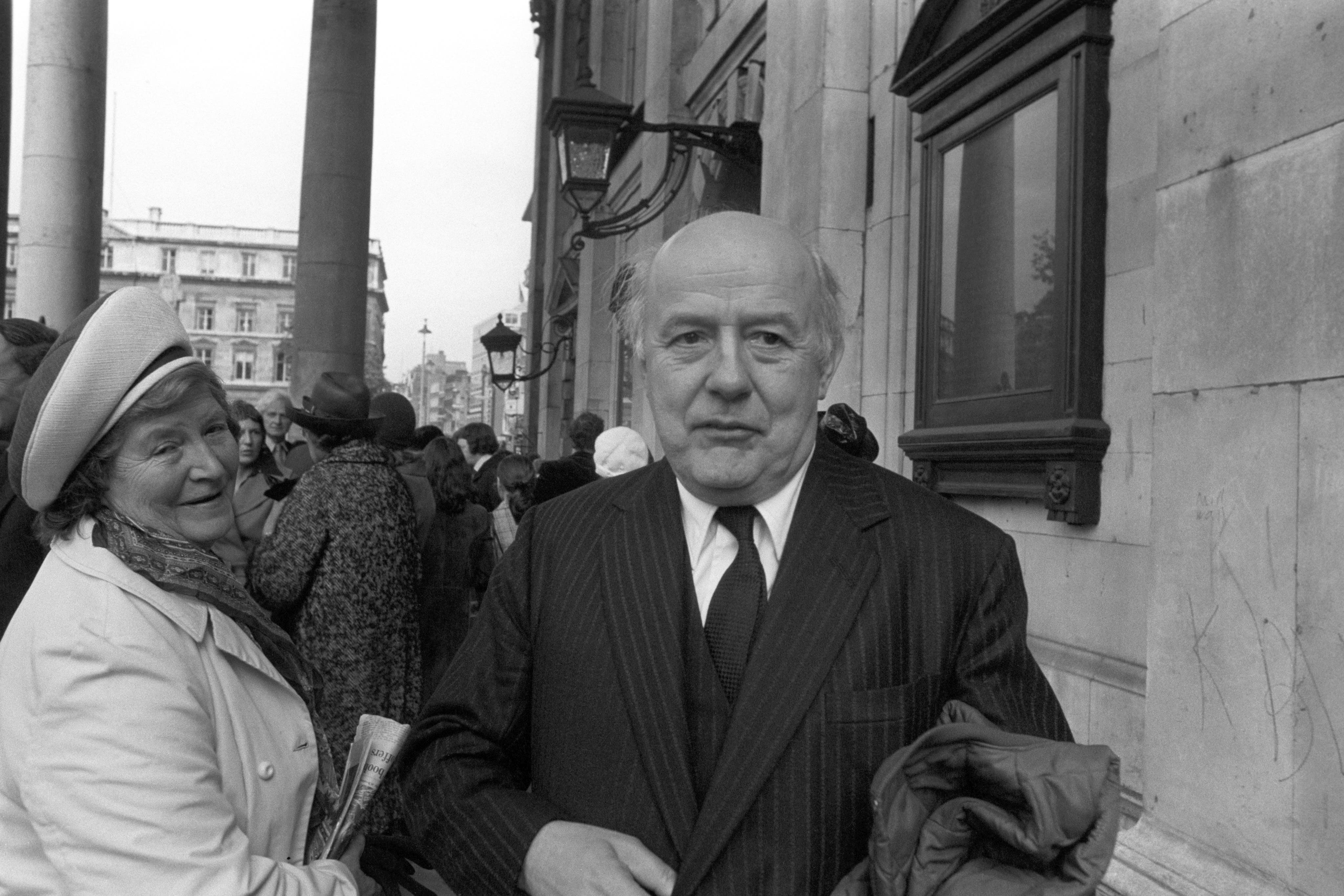Betjeman banned, Auden ‘too filthy’ – why do we still have politicians acting as gatekeepers to the poetic tradition?
No 10 blocked Ted Hughes from becoming poet laureate because he was ‘unsuitable’, John Betjeman for being ‘lightweight’ and WH Auden after he was rumoured to have written erotica. Luke Wright says they’re missing the point


I spend half my life banging on about how awful the government is and yet the thought that some of them might pass comment on my poetry deeply offends my artistic sensibilities. What the hell would they know, cretins! Rank hypocrisy? Perhaps, or maybe it’s just the dextrous duality of the poet’s mind. Either way, whilst it seems fitting for poetry to be political, to speak truth to power, it feels strange when the political world has to offer up some lit crit.
Last month we had the news that Jeremy Corbyn and Len McClusky plan to finally make poetry accessible with their anthology Poetry For The Many. I haven’t rushed to buy a copy but it did at least lead to an amusing exchange on Twitter where centrists mistook lines from Shelley’s “The Masque of Anarchy” for Corbyn-penned doggerel.
This week, newly released official papers have revealed the behind-the-scenes wrangling that took place in the 60s and 70s when government ministers and their advisors were trying to recommend the next poet laureate to Elizabeth II.
Sir John Betjeman was initially dismissed by Harold Wilson’s advisor Lord Goodman as being too lightweight. “The songster of tennis lawns and cathedral cloisters does not, it seems to me, make a very suitable incumbent,” he wrote, “an aroma of lavender and faint musk is really not right for an appointment of this kind at this moment.” Meaow! Saucer of sherry for the Goodman table.
They eventually decided on Cecil Day-Lewis (yes, father to Daniel) but when he died four years later the whole ugly business flared up again. Adrian Mitchell was seen as too left-wing, WH Auden was suspected to have written a pornographic poem (published anonymously), which was described as “running to about 30 verses of an utterly revolting character”, and Ted Hughes was dismissed as someone “unsuitable” for having “written too much in a violent strain.”
When faced with genuine subversion the aroma of lavender and musk didn’t seem so bad after all, and Betjeman got the job, insisting the original stipend of a butt (700 bottles worth) of sherry be reinstated. Good ol’ Betje.
The poet laureateship is a strange anachronism. First up, it’s not a governmental role, it’s a position in the Royal Household. Not literally, though I like the idea of Simon Armitage writing in his shed round the back of Buck House.
The role was created in 1668 for John Dryden, a close ally of King Charles II, at a tumultuous time in English history, its initial purpose initially was political, not literary. Stories are told of Dryden strolling with the King in The Mall, planning which of his enemies he would attack next.
But while a great poet like Dryden could bring gravitas to his propaganda, the same could not be said of his successors, a mixture of second-rate dramatists and social climbers who were often the subject of satires by the leading poets of the day. Even when greats like Wordsworth got the job they were usually long past their best. For a hundred years laureates churned out uninspiring verses on occasions of national importance and nobody paid them much attention.
Indeed, the post was nearly abolished before Alfred, Lord Tennyson was appointed in 1850 and injected some life back into job. Tennyson was wildly popular and seen as the ideal Victorian poet. When he died there was a period of intense national mourning and they almost abolished the position again, thinking no one could match up to the great man.
But on it stumbled. One of the issues being that it was a job you held for life, which meant it became a sort of retirement home for great but past their sell-by-date poets like Betjeman, who struggled to write anything of merit during his 12 years as laureate.
New life was injected into the role in 1999 when Andrew Motion became the first Laureate to be appointed for a ten year term, not life. He and his two successors, Carol-Ann Duffy and Simon Armitage, have taken the role seriously and used their elevated status for good: community-based projects, education, promoting poetry.
But as I read the news of how Betjeman was passed over/appointed I couldn’t help but feel how strange it is we still have politicians acting as gate-keepers to the poetic tradition. Sure, the role is ceremonial but it still represents a problematic privileging of one poet’s voice over others. And it’s not as if poets struggle to reach huge audiences without official status, think of Rupi Kaur or Kae Tempest.
Andrew Motion said when he took the post that he hoped to “speak truth to power rather than speak on behalf of power”, and he did indeed write a poem attacking the decision to go to war in Iraq in 2003. But while it may be possible to speak against certain policy decisions ,a laureate who writes poems as a member of the Royal Household can’t really challenge the power structures that are inherent in society. Surely, in a democracy, governments should not impose standards or make official determinations regarding literature and the arts. And if you’re being passed over by the powers that be, you’re probably doing something right. Now, enough pontificating, I’m off to write some verses of an utterly revolting character.
Luke Wright is a poet and broadcaster. He is currently on tour with his new show Luke Wright’s Silver Jubilee. His latest book is Peak






Join our commenting forum
Join thought-provoking conversations, follow other Independent readers and see their replies
Comments